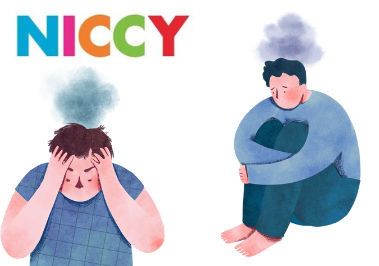Pandemic Response Paving Way for Positive Changes in Children’s Mental Health – Children’s Commissioner


“The response to the Pandemic has shown how quickly services and systems can change when they have to. Overnight we saw the introduction of an online booking system for Child and Adolescent Mental Health Service (CAMHS) appointments as well as evening and weekend clinics where they did not exist before.
“We need to maintain this urgency and dynamism and use it to drive the ambitious reform required to create a mental health care system that is fit for our children and young people.”
The Commissioner’s 2018 Review of Mental Health Services for Children and Young People made various recommendations to improve the system and as a result a Government Inter-departmental Group was set up to take these forward. The Commissioner reports on its progress annually and sets out how actions are affecting children’s mental health support in Northern Ireland.
Koulla continued, “Without a doubt, I am more worried about our children’s and young people’s mental health today than I was in 2018 because of the seismic impact of the Pandemic. However, unlike in 2018 I am optimistic the Department of Health has the commitment and determination to progress required changes effectively.
“Despite the Pandemic, we have seen positive policy developments, a Mental Health Action Plan and Covid Mental Health Response Plan, the first youth mental health prevalence study, a Mental Health Champion and the recent Mental Health Strategy being released for consultation.
“Ultimately, I will be measuring the success of these developments by assessing if children and young people are satisfied with the services and support and if their mental health is better as a result.”
The Commissioner commented on the impact of the Pandemic on children’s mental health and highlighted some areas of the system that are causing concern, she said:
“We cannot lose sight of the challenges faced by the system pre-pandemic and those brought about and exacerbated by it. In fact, in some areas, the picture is seriously concerning and I remain frustrated by the slow progress of the specific recommendations concerning children with a learning disability and those with drug and alcohol problems.”
Figures received by NICCY from the Health and Social Care Board indicate a year on year increase in the number of anti-depressant prescriptions given to under 18s (over 11K in 2014 to over 17k in 2019), and that approximately 20% of young people who require professional mental health support do not attend their first or review appointments.
Figures also indicate that capacity continues to be overwhelmed by demand. While it is important to note not all services are affected, the number of children and young people waiting for support from Step 3 services (services required by children with more severe, complex and persistent disorders) increased from 967 in March 2019 to 1205 in March 2020. Of the young people waiting in 2019, 18.5% were waiting more than the statutory 9 weeks waiting time target and in 2020, 46% were waiting more than 9 weeks.
The Commissioner explained, “Some of the most recent statistics on referrals received for CAMHS are showing a stark drop since the beginning of the Pandemic. This indicates that worryingly, like child protection referrals, children and their families may not be seeking help for their mental health as a direct result of the Pandemic.
“CAMHS is fully expecting a surge in demand due to the impact of the Pandemic and it is important the system is ready to meet this once it comes. It must remain flexible and send a clear message to children and families that services across the system are still available and do more to encourage children and families to reach out for help if they need it.”
She concluded, “This situation will only improve if there is a significant annual uplift in resources to children’s mental health services and support.
“I said reform was ‘urgent’ in 2018 and ‘critical’ in my first monitoring report. In 2021, the seeds of reform have been planted but we need to use the existing urgency, dynamism, commitment and determination to see reform through to full fruition so our children are less likely to experience mental health issues and if they do, the right services are there, across the system, when they are needed”.
Commenting on the Commissioner’s monitoring report, Professor Siobhan O’Neill, Interim Mental Health Champion, said:
“I have been vocal about my concerns about the impact this pandemic will have on the mental health and wellbeing of children and young people. I welcome the Commissioner’s monitoring report and the importance it plays in the scrutiny of our mental health services for children and young people.
“It comes at key time when we have a draft mental health strategy consultation currently open, presenting our vision for excellent mental health services. I look forward to continuing to work closely with the Commissioner and young people to develop and improve the mental health services that children and young people receive.”
ENDS
Notes to Editors
Signposting
If you are a young person and need support with your mental health talk to your parents/guardians, GP, teacher or another trusted adult.
You can also contact the following organisations: